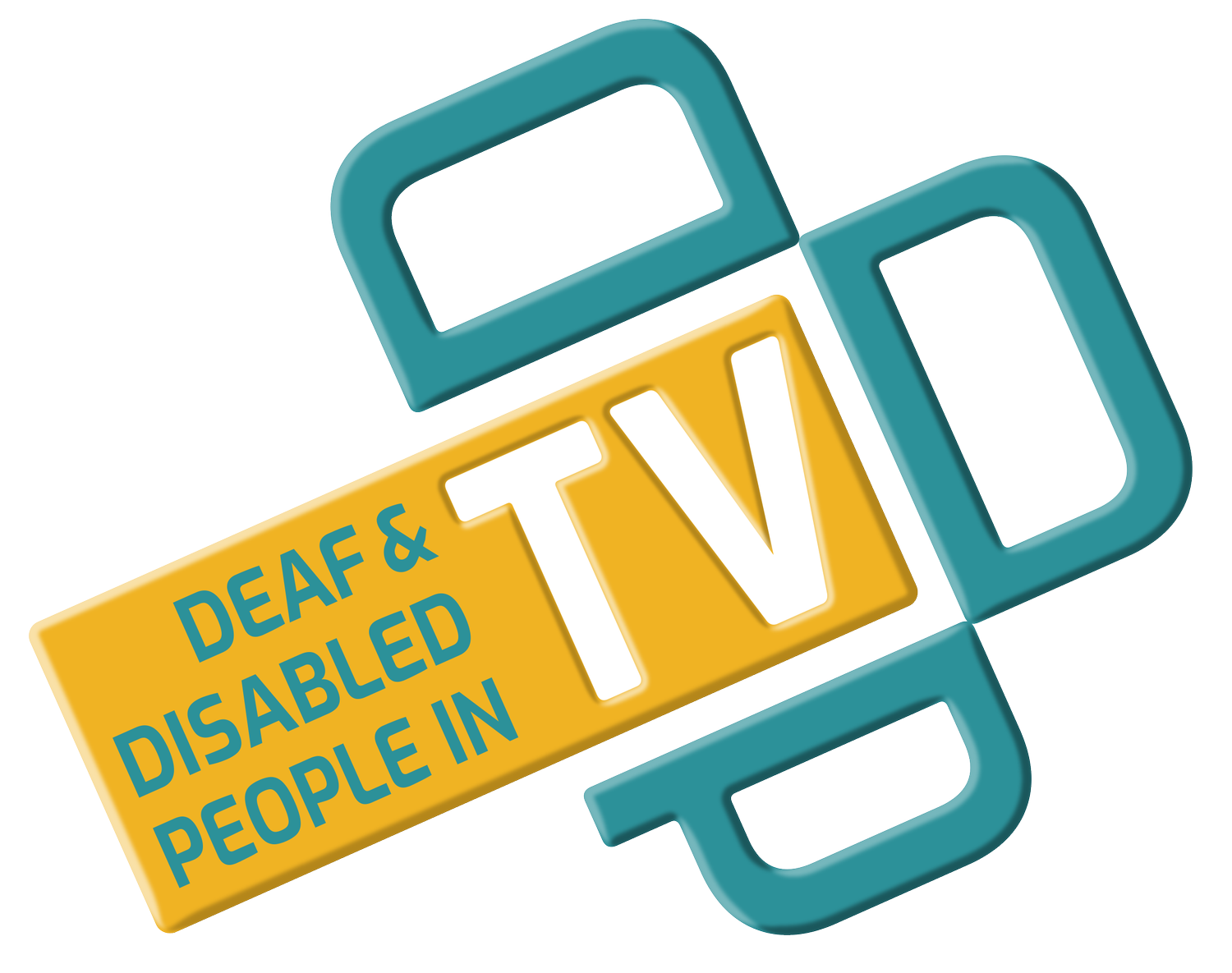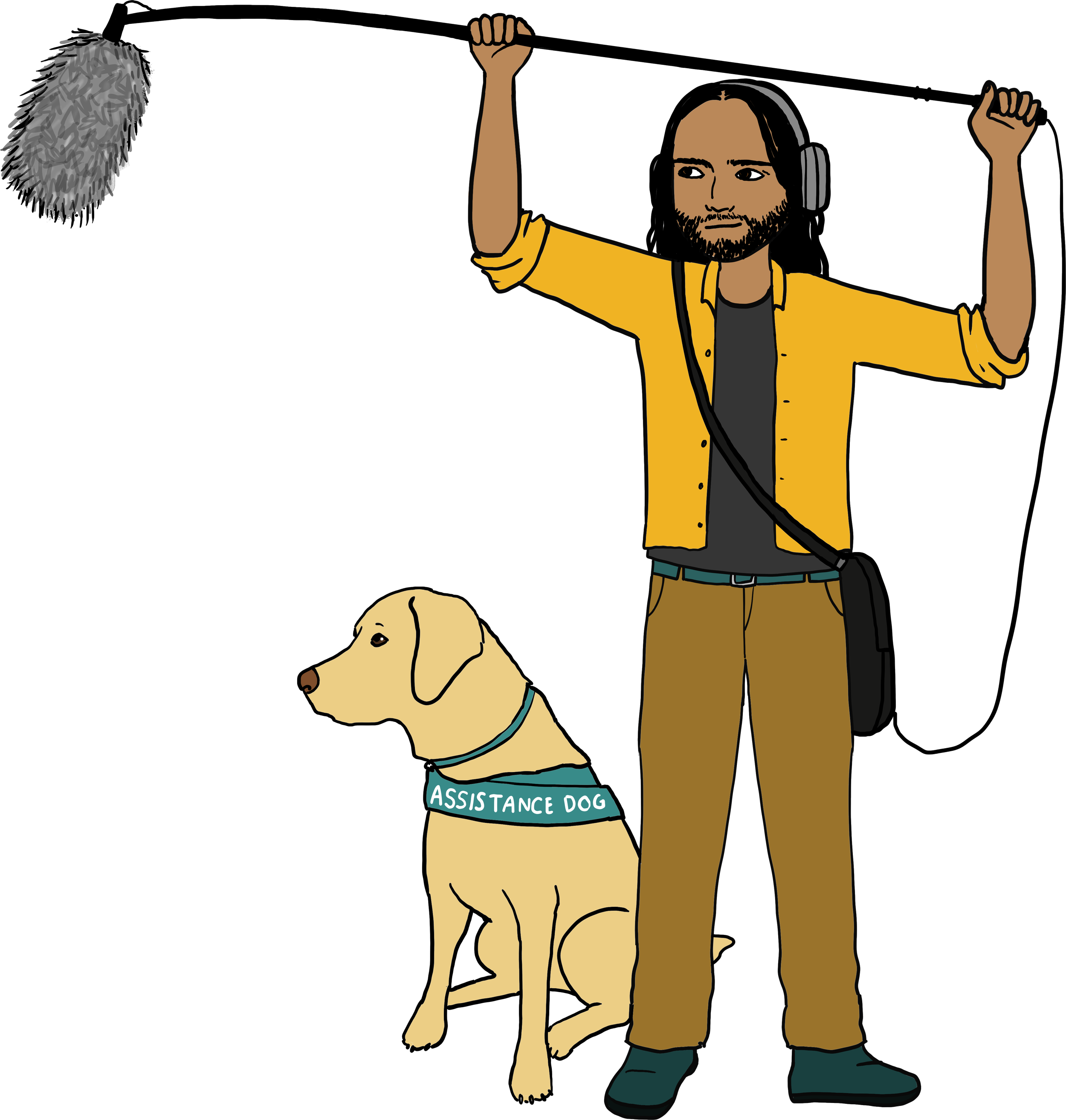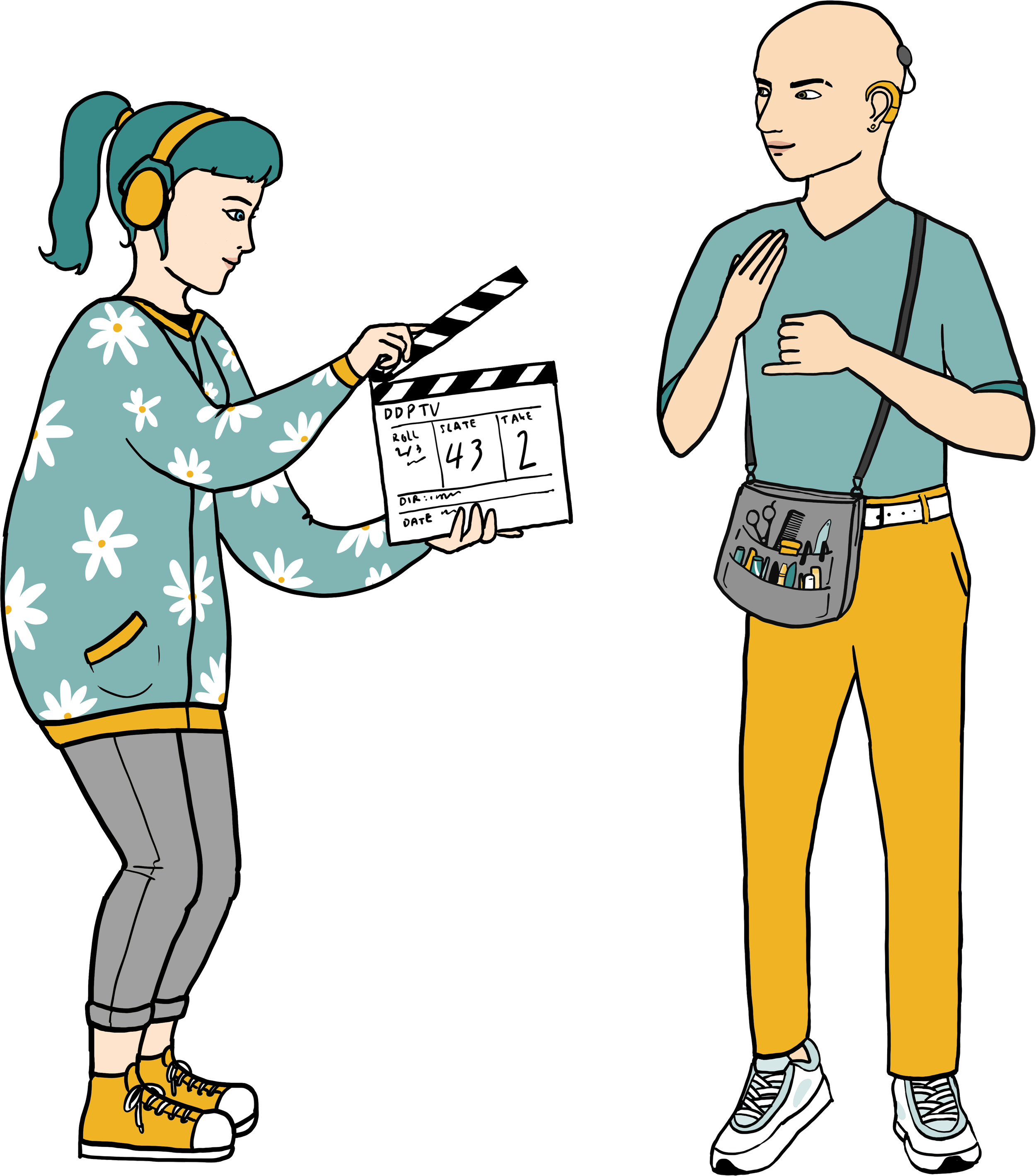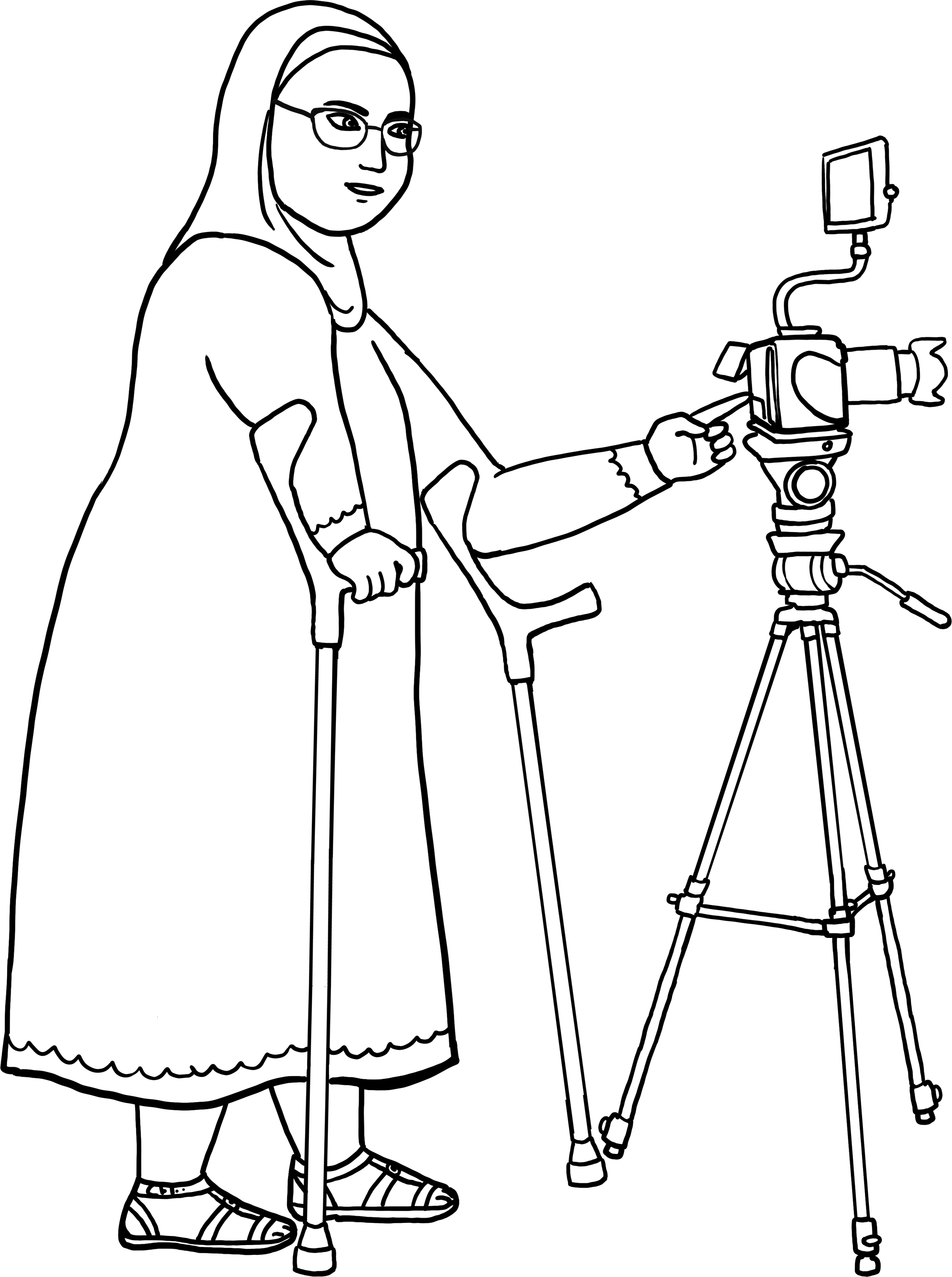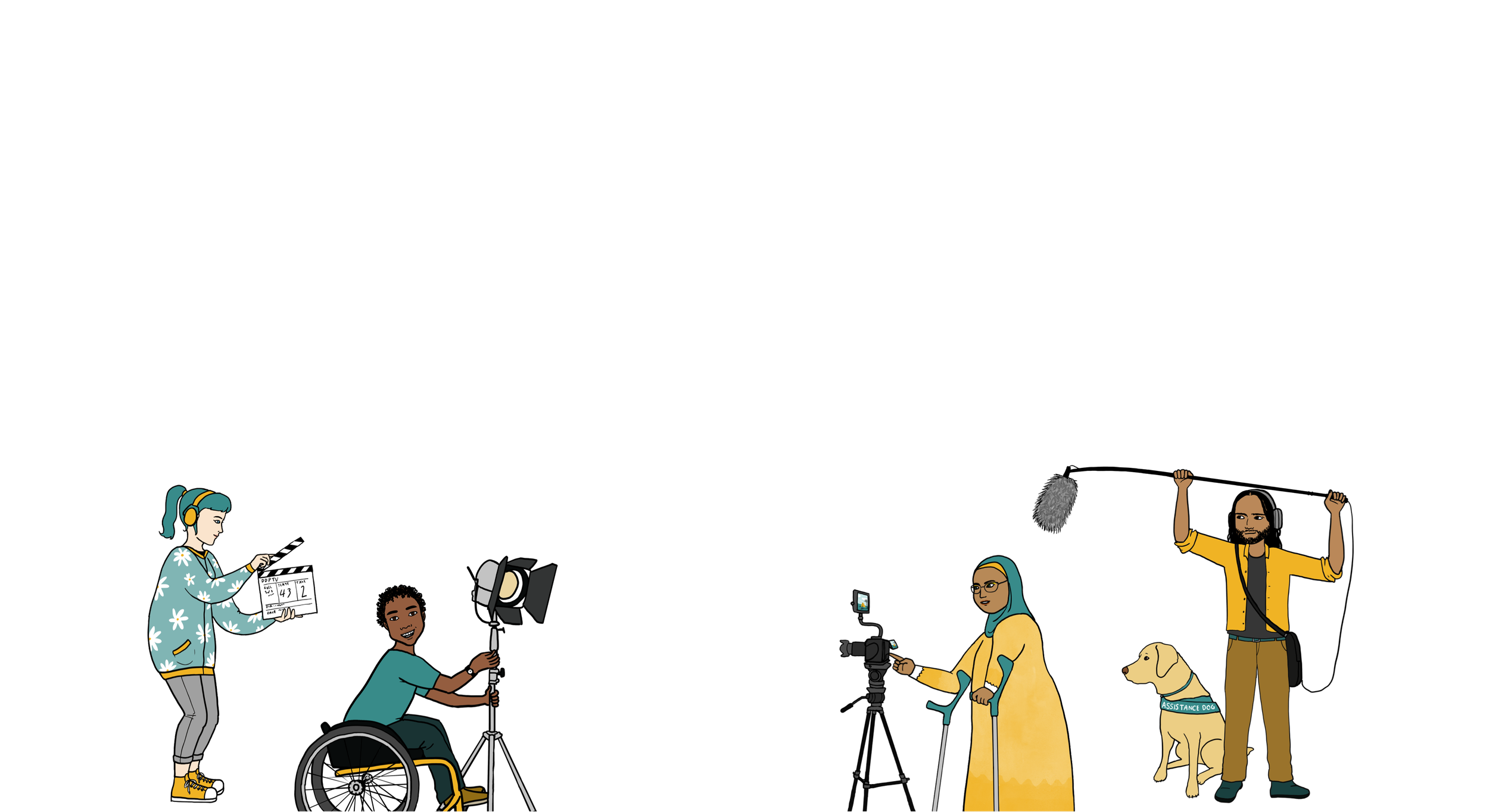
HOW TO BE DISABLED IN TV
The aim of this page is to inform you of your legal rights as a Deaf / Disabled and/or Neurodivergent employee and show ways to make the process as seamless as possible. If there is anything missing or any questions we do not answer – please do let us know.
Working in television can be a daunting experience if you’re a Deaf /Disabled and/or Neurodivergent professional. It’s a fast-paced, stressful and demanding environment. But when things are done right and reasonable adjustments are efficiently put in place, it can be a fun, rewarding and joyful industry.
Am I disabled?
The Equality Act says you are disabled if you, “have a physical or mental impairment that has a ‘substantial’ and ‘long-term’ negative effect on your ability to do normal daily activities.”
This is how the law is worded, but it’s also important to remember that “Disabled” is not a negative word, it is a descriptor that covers a range of conditions, impairments, injuries and illnesses also including, but not limited to, mental health, chronic illness or pain, neurodivergence and learning disabilities or difficulties.
Some people may qualify as Disabled, but choose not to identify that way, others may choose not to disclose – and that is fine.
We get approached from time to time from people concerned they are not disabled enough to join our community or who feel guilty for “taking up Disabled space”. To this we say, there’s room at the table – come join us!
Language
At Deaf & Disabled People in TV we request all advertisements come in identity-first language and we use identity-first language for public facing events. This is in line with the social model of disability. We encourage broadcasters, streamers, indies and other stakeholders to also adapt this model of language.
But we never police how Disabled people self-identify or what language they should use when self-describing. It is important you use the language that makes you comfortable and you have the right to be described however you see fit both at work and in your personal life.
When speaking with your employer it is fine for you to ascertain how you want to be described and who you want this to be shared with.
Disclosure
Disclosure is one of the hardest areas to navigate – this section covers deciding when to disclose, how to disclose, who to disclose to and whether to disclose.
There is no right or wrong way to go about this – and you should never feel under pressure to disclose if you don’t want to. Only you can decide if you want to disclose, who you feel comfortable talking to and when you want to disclose.
You may decide to speak with HR, your line producer, or your managing director. These are all valid options. Arrange a meeting - there is no need to give any particulars or explain why at this point. Prepare for the meeting - have a clear idea of what you want the outcome to be - what reasonable adjustments or access provisions you need put in place and who you are happy for this information to be shared with.
Follow up your meeting with an email to confirm what was agreed so you have it in writing.
We recommend companies ask people at every stage whether they have any access requirements, and that they check in regularly – as this can change at any time. By asking people this question you make it part of the daily conversation, and as ordinary as a callsheet or a development lunch.
Lastly, it is important to remember - regardless of whether or not you disclose or share openly that you are disabled - you are still protected by the law and your employer has legal duties that they must fulfil.
Educate, educate, educate
When you move company constantly as a freelancer, having to keep breaking down your access needs and your language choices, and communicate them to the rest of the team can be exhausting. We have created our own Crib Sheet which you can download and edit for your own personal needs, and share with your team.
Some broadcasters provide Access Riders or Disability Passports – these are documents that you fill in providing a framework of your access requirements. They can be transferred across departments which means that any changes to your job or a promotion should be a seamless process. It is hoped that Disability Passports will be rolled out within the independent production sector at a later date.
Employer’s Responsibilities
The Equality Act 2010 legally enshrines an employer's responsibility toward disabled people. Employers must make reasonable adjustments to make sure disabled workers, both freelancers and employees, are not substantially disadvantaged when doing their jobs.
The type of reasonable adjustments employers put in place will vary depending on the disabled person and their access requirements - this could include changing their working practices, offering alternative technology, making adjustments in the workplace environment, or ensuring that information or any manner of communication is provided in an accessible format.
Examples of reasonable adjustment you could request include a designated accessible parking space if public transport is a barrier, it could mean an office chair for your sign language interpreter or staggered/flexible working hours if you have a chronic condition.
By providing these reasonable adjustments - employers can remove the barriers disabled people face, then coupled with Access to Work, if needed - this should enable you to do your job on an equal par with your peers.
Remember reasonable adjustments are a legal requirement. The law protects you.
Access to Work
Access to Work is a government grant for disabled people in paid employment.
The money funds practical support, mental health support or communication support for job interviews. It does not cover reasonable adjustments - which are the changes employers must legally make to support disabled employees to do their job.
Examples of what this money can be used for include assistive technology, British Sign Language interpreters, palantypists, support workers or job coaches, taxis to and from work if public transport is a barrier, disability awareness training for colleagues, equipment adaptations and many other things…
This pot of money is exclusively for access and production cannot absorb this into the budget to cover other shortfalls.
Before applying for Access to Work we would recommend having a think about what support you need in the workplace and speaking to other disabled people with a similar condition or impairment to find out what they have in place. You may not need a similar set-up, but it is useful to know what options are open to you. To connect with other Deaf, Disabled and / or Neurodivergent people in media please do join us.
You can secure Access to Work via a PAYE contract - this package will be tied to your job and usually cannot be taken to your next job. For each new job you will usually need to put in a new claim.
You can also secure Access to Work via a Schedule D agreement - usually this takes the form of a budget allocation for a certain period of time that you manage yourself.
Claiming Access to Work via Schedule D or PAYE is both time consuming and draining, but is worth the energy. Currently the wait time for an initial response is 20 weeks so patience and persistence are key.
Networking with other Disabled Professionals
Working in an industry where you rarely meet other disabled professionals or work with them at the same company can be alienating and lonely. Speaking with people who have similar lived experience in the media can be cathartic and help you find creative solutions.
If you’re a Deaf, Disabled or Neurodivergent media professional, come join us in the group, speak your truth, and find and offer solutions. You can also reach out to other tremendous networks such as Triple C /DANC
The Value of You
Your lived experience, your voice, your thoughts and your opinions bring so much to the table - the diversity of your lived experience helps unlock new ideas, new formats, new concepts and new talent. In a world where TV is made to a certain mould, you offer a whole new mindset and way of thinking and working. That is the beauty of you. That is what you bring, so please keep pushing for your place in the industry.
